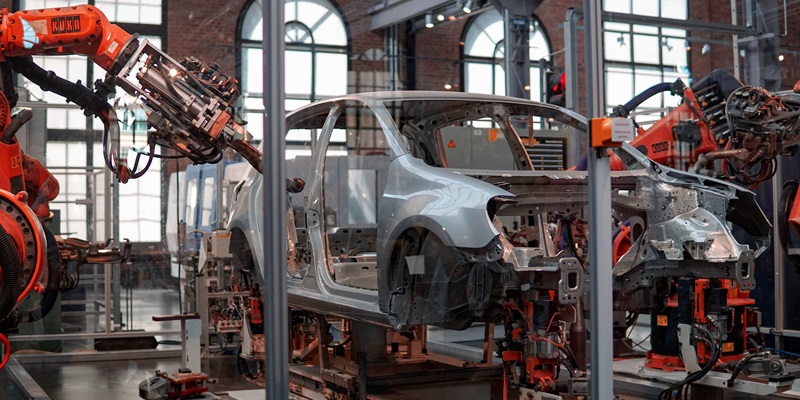In the rapidly evolving landscape of the automotive industry, General Motors (GM) has emerged as a frontrunner, embarking on a remarkable digital transformation journey that is set to revolutionize the way we think about transportation. Through embracing cutting-edge technologies and reimagining traditional business models, GM is driving innovation and shaping the future of mobility.
Definition of Digital Transformation
Digital transformation refers to the integration of digital technologies into all aspects of a business, fundamentally changing how it operates and delivers value to customers. GM’s approach to digital transformation has been comprehensive, with the company exploring new possibilities and seizing opportunities in various areas of their operations.
GM’s Digital Transformation Goals
With a vision of creating a more connected, autonomous, shared, and electric future, GM has set ambitious goals that align with the changing needs and preferences of customers. By harnessing the power of digital transformation, GM aims to revolutionize the way we interact with vehicles, the roads we travel on, and the ownership models that dominate our current landscape.
Investment in Autonomous Vehicle Technology
One of the key focal points of GM’s digital transformation is the development of autonomous vehicles. By heavily investing in this technology, GM is on the brink of launching a fleet of self-driving cars in the near future. This advancement promises to have a profound impact on transportation systems, significantly reducing accidents and improving road safety.
Embracing Shared Mobility
GM is not only focusing on autonomous vehicles but also embracing the concept of shared mobility through its innovative car-sharing platform, Maven. This platform provides a convenient and cost-effective alternative to traditional car ownership, catering to the changing needs and preferences of consumers, particularly those residing in urban areas.
Reshaping the Auto Industry
GM’s digital transformation is not just about transforming its own operations; it is also reshaping the entire auto industry. By driving the development and implementation of autonomous vehicles, GM is at the forefront of revolutionizing transportation. Self-driving cars have the potential to reduce traffic congestion, enhance mobility for all, and create a safer and more connected world.
Benefits of Self-Driving Cars
The rise of self-driving cars represents a groundbreaking advancement in transportation technology. Beyond the convenience they offer, these vehicles have the power to revolutionize transportation systems and the way we move within them. By reducing traffic congestion, self-driving cars can enhance the mobility of individuals while also significantly reducing carbon emissions and pollution.
Challenge to Traditional Car Ownership
GM’s focus on shared mobility challenges the traditional model of car ownership. As people’s attitudes towards mobility evolve and the emphasis shifts from ownership to access and convenience, platforms like Maven become increasingly relevant. GM’s embrace of shared mobility not only aligns with changing consumer preferences but also caters to the unique needs and challenges faced by urban dwellers.
Fostering Innovation and Collaboration
GM’s digital transformation journey extends beyond its own operations. Through its dedication to embracing new technologies, GM fosters innovation and collaboration within the industry. By partnering with technology companies and encouraging cross-industry collaboration, GM is accelerating the development of new technologies and business models, pushing the auto industry forward into an exciting future.
General Motors’ digital transformation journey exemplifies the company’s commitment to revolutionizing the auto industry and shaping the future of mobility. By integrating cutting-edge technologies and reimagining traditional business models, GM is creating a more connected, autonomous, shared, and electric future. Through advancements in autonomous vehicles and the embrace of shared mobility, GM is not only transforming its own operations but also challenging the status quo and setting the stage for an innovative and sustainable transportation ecosystem. As GM continues to drive this digital transformation, it stands as a beacon of change, pushing the boundaries of what the automotive industry can achieve.

